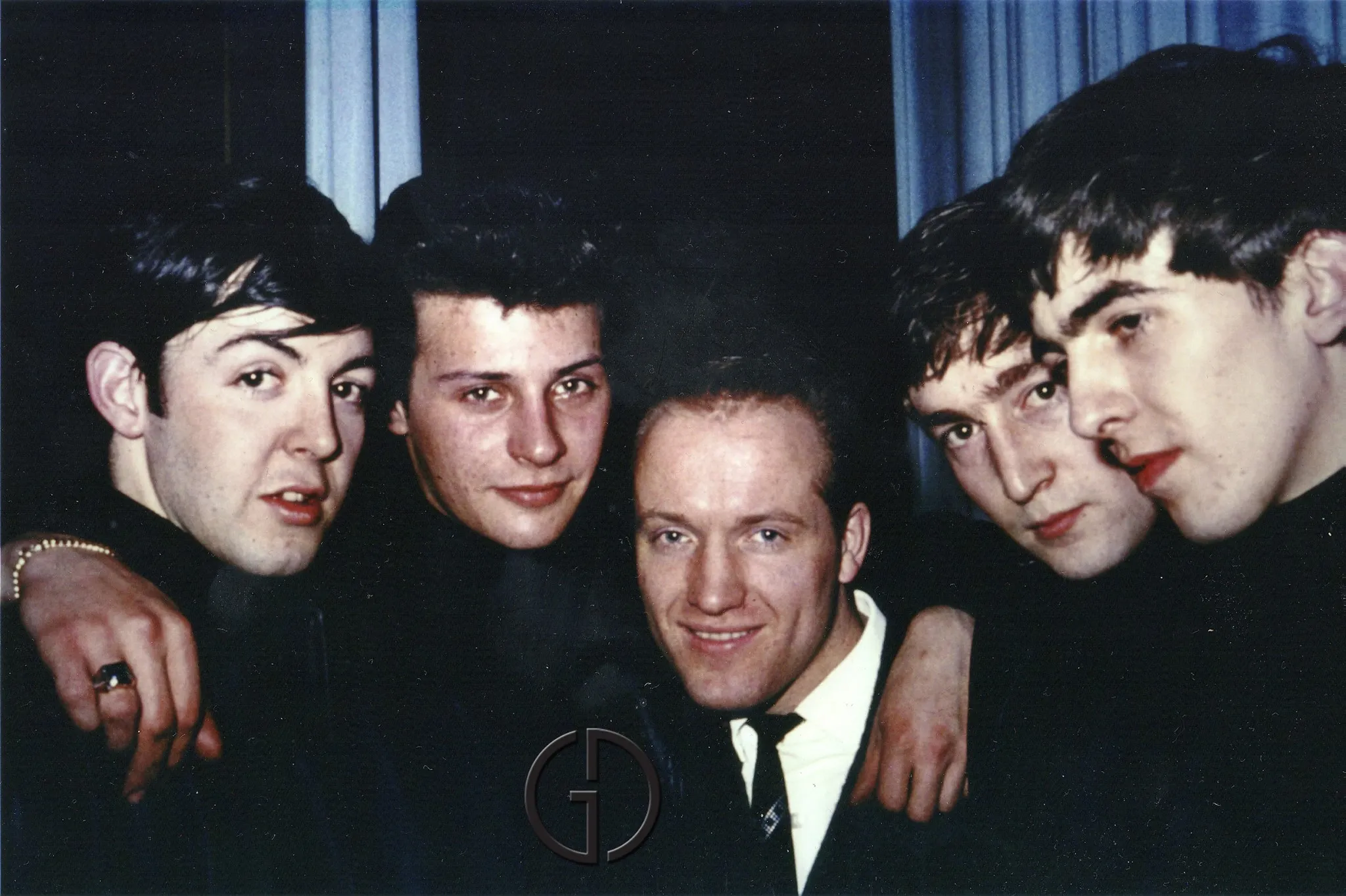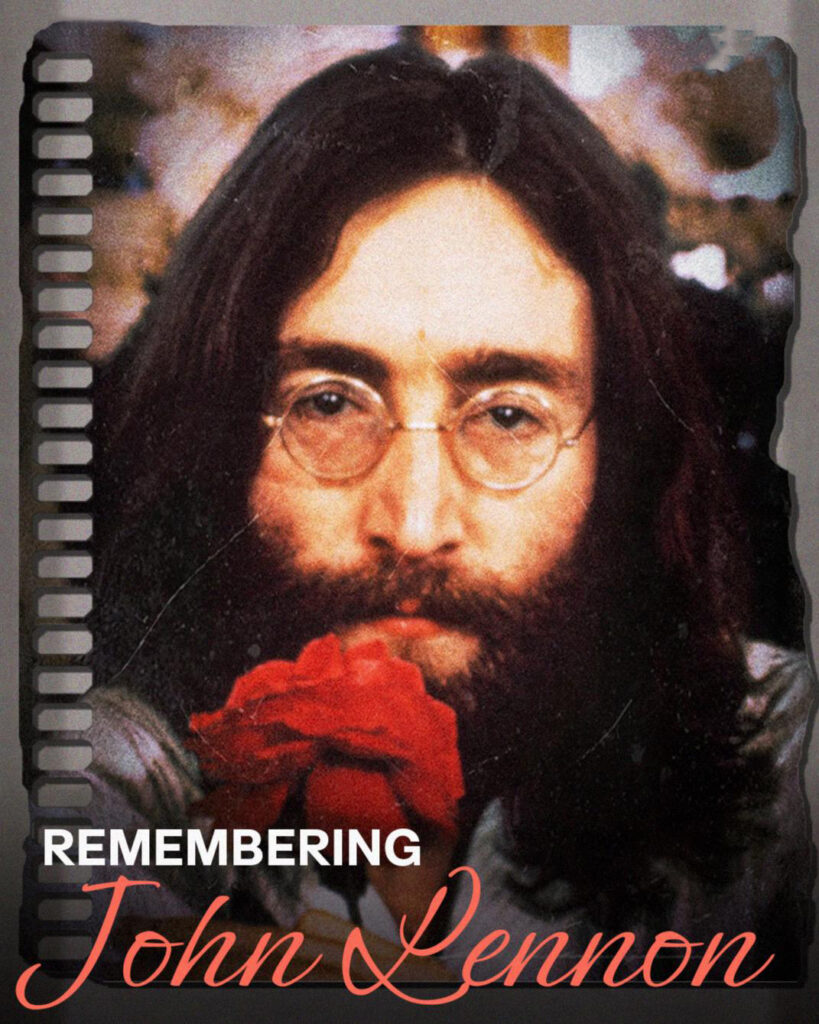On what would have been John Lennon’s 85th birthday, the world pauses once more — not in sorrow, but in reflection. It’s hard to imagine that the man who sang of a world without borders, greed, or war has been gone for decades. Yet his voice still hums softly in cafes, through vinyl crackle and radio waves, whispering dreams of peace and love to new generations who never even saw him perform live.
Time has not dimmed his message. In fact, it feels even more urgent today.
John Lennon wasn’t just a Beatle. He wasn’t only a musician or an icon of the sixties. He was something rarer — a mirror of his era and a compass for those who came after. On his 85th birthday, we don’t just celebrate a life. We revisit a spirit that refused to settle for the world as it was.
A Boy from Liverpool Who Believed in the Impossible
It began, as all great stories do, in unlikely circumstances. Liverpool in the 1940s was gray, battered by war, and uncertain of its future. In that tough environment, a mischievous boy named John Lennon discovered his first love — not fame, not rebellion, but music.

The guitar became his escape, his voice a weapon sharper than any blade. By his teens, Lennon had already begun to gather kindred spirits around him — Paul McCartney, George Harrison, and later Ringo Starr — and The Beatles were born. Together, they would do more than make hit records. They would redefine what pop culture could be.
Their songs didn’t just top charts; they shaped moods, movements, and even moral compasses. But Lennon, restless and searching, was never content to simply entertain. He wanted to wake people up.
The Beatles, Fame, and the Search for Meaning
Fame, as Lennon often said, is a strange thing. “We were just a band that made it very, very big, that’s all,” he once remarked. But the world saw something different — four young men turned into myth.
Between 1962 and 1970, The Beatles went from playing dingy clubs in Hamburg to leading a cultural revolution. They were the soundtrack of a generation. Yet beneath the bright lights and screaming fans, Lennon wrestled with his own contradictions — success versus authenticity, faith versus doubt, love versus loneliness.

He poured all of it into the music. From the raw energy of Twist and Shout to the introspective honesty of Help!, Lennon’s voice evolved. His lyrics became more personal, even confessional. Songs like In My Life revealed a poet awakening inside the pop star.
But by 1970, the dream had fractured. The Beatles dissolved. The world mourned as if it had lost a part of itself — and perhaps it had. Yet for Lennon, it was the beginning of something new.
Imagine: The Song That Became an Anthem
When Imagine was released in 1971, it didn’t just become a hit — it became a manifesto. The opening piano chords still feel like an invitation to dream, a whisper of hope even in the darkest of times.
“Imagine all the people living life in peace…”
Those words, simple yet radical, turned into one of the most recognizable refrains in modern history. Lennon once explained that Imagine was “virtually the Communist Manifesto,” but instead of fear or ideology, it was wrapped in melody and warmth. It asked listeners not to fight for peace, but to believe in it.
That belief became his lifelong mission. With Yoko Ono, his partner in art and activism, Lennon staged “bed-ins” for peace — a protest not of violence, but of stillness. Reporters expected scandal; instead, they found two people in pajamas talking about love.
It was audacious. It was absurd. It was Lennon.
A Dreamer and a Rebel
Lennon was never comfortable being labeled. He was both an idealist and a cynic, both tender and sharp-tongued. He could sing about love and then mock the very idea of it minutes later. Yet that contradiction was part of what made him human.
His solo work reflected this complexity. Working Class Hero, Instant Karma!, and Give Peace a Chance weren’t just songs — they were statements of resistance. He turned his music into a mirror of the social turbulence of the 1970s, confronting war, inequality, and hypocrisy with wit and courage.
But beyond the activism and the headlines, Lennon remained, at his core, a man searching for peace within himself. After years of chaos and controversy, he stepped away from public life in 1975 to raise his son, Sean. The world went quiet without him — and for five years, he lived simply, cooking, baking bread, and rediscovering the calm he’d always sung about.
The Silence That Followed
Then came December 8, 1980. The day the music stopped.
When news broke that John Lennon had been shot outside The Dakota in New York City, the world seemed to stand still. Fans flooded the streets, holding candles, singing Imagine through tears. Lennon’s voice, once so alive, now belonged to eternity.
He was just 40.
Gone too soon, yes — but never forgotten.
Lennon’s Legacy: Beyond Music
Decades later, the world he dreamed of still feels far away — yet his message continues to echo. From murals in Tokyo to tributes in New York’s Strawberry Fields, John Lennon’s name is synonymous with peace, courage, and imagination.
His songs are still taught in schools. His quotes are painted on protest signs. Artists across generations — from U2 to Oasis to Billie Eilish — cite him as an influence. Even in digital spaces, where music is consumed in fragments and algorithms, Lennon’s voice cuts through. His message still matters.
“You may say I’m a dreamer, but I’m not the only one.”
That line has become more than lyrics. It’s a philosophy. In a time of division and noise, it’s a reminder that dreaming of a better world isn’t naïve — it’s necessary.
Why John Lennon Still Speaks to Us
To celebrate John Lennon’s 85th birthday is to recognize something profound: he never really left. His melodies still stir something deep in the human heart — that longing for unity, that stubborn hope that love can win.
Perhaps what keeps Lennon relevant isn’t nostalgia, but truth. He understood the contradictions of being human — how we crave connection yet fear vulnerability, how we build walls and then write songs about breaking them down.
In a sense, Lennon didn’t just sing about peace. He embodied its struggle — messy, imperfect, but real.
And maybe that’s why his music endures. Because beneath the slogans and fame, Lennon’s message wasn’t about pretending the world is perfect. It was about daring to imagine it better.
Echoes Through Time: The 85-Year Reflection
Eighty-five years. That’s how long it’s been since the boy from Liverpool first opened his eyes. The world has changed beyond recognition — yet if Lennon could see it now, one suspects he’d smile wryly, maybe write a song about smartphones and silence, or about how “love” has become a hashtag.
But he’d also see millions still singing his words. He’d see peace marches using Give Peace a Chance as their anthem. He’d see young musicians learning to play Imagine on their first piano.
He’d see that the dream lives on.
The magic of Lennon’s legacy isn’t just in nostalgia. It’s in continuation — in the way his ideas adapt to every era. Each time his voice is played, whether on vinyl or Spotify, it carries a piece of his vision: a belief that we can choose compassion over chaos.
Love, The Final Word
John Lennon’s story has always been about love — not the sugary kind, but the raw, human kind. The kind that demands effort, forgiveness, and faith.
He once said, “Love is the answer, and you know that for sure.” It wasn’t a cliché for him; it was a challenge. Could we truly love — ourselves, each other, the planet — even when it’s hard?
Eighty-five years later, the question still stands.
Maybe that’s the real tribute to John Lennon: not just to play his records or quote his lines, but to live by the values he sang about — to keep imagining, to keep loving, to keep daring to dream.
Because as Lennon proved, even when the world falls apart, a single song can hold it together.
Conclusion: The Dream Never Ends
As the candles flicker on what would have been John Lennon’s 85th birthday, we are reminded of something timeless: the dreamer may be gone, but the dream endures.
His melodies remain stitched into our collective consciousness, a soundtrack for every generation that dares to believe in peace. Lennon showed us that art could change minds, that music could bridge oceans, that imagination could reshape the world.
He left too soon — but maybe that’s what makes his story so powerful. It forces us to continue where he left off. To imagine. To create. To love.
Gone, never forgotten.
John Lennon still sings — not from a stage, but from within the hearts of all who listen.
Beta feature

